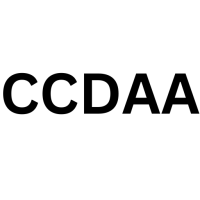Summary
Cut through the green tape
We don't push agendas. At Net Zero Compare, we cut through the hype and fear to deliver the straightforward facts you need for making informed decisions on green products and services. Whether motivated by compliance, customer demands, or a real passion for the environment, you’re welcome here. We provide reliable information—why you seek it is not our concern.
Details
- California
Public and private firms "doing business in California" with over $1 billion in annual revenue.
Subsidiaries are exempt from separate reporting if their parent company includes them in its consolidated disclosures.
Deep dive
Background
The State of California has long been in the vanguard of environmental regulation in the United States, and the Senate Bill 253 (SB 253) - Climate Corporate Data Accountability Act (CCDAA) - is the latest in a series of policies and programs aimed at addressing climate change in the state. Building on previous regulations such as the Global Warming Solutions Act (GWSA) of 2006 and other climate-related bills and Executive Orders, the CCDAA (enacted in October 2023) is a major step forward in strengthening corporate accountability for their carbon emissions. Earlier regulations established the foundation for statewide greenhouse gas (GHG) reduction targets with the GWSA mandating emissions disclosures from establishments involved in selected industrial activities. The CCDAA establishes a mandatory carbon disclosure regime for a wider range of companies and activities. The Act fits within California’s broader strategy to attain carbon neutrality by 2045 and maintain net negative emissions thereafter and aligns with global efforts to ensure corporate transparency in climate impact reporting. Being the fifth largest economy in the world, the CCDAA and other climate-related policies in California have far-reaching implications beyond the borders of the State.
Reporting Requirements
The CCDAA establishes stringent carbon disclosure requirements for affected companies, mandating that starting in 2026 (disclosing emissions for the 2025 calendar year), companies annually report their Scope 1 and Scope 2 emissions, and, starting in 2027, their Scope 3 emissions. All reporting must follow the Greenhouse Gas Protocol, a globally recognized carbon accounting standard, to ensure consistency and accuracy in the reporting regime. Moreover, emissions disclosures must be verified by an independent third-party assurance provider to ensure the credibility of reports.
Penalties for noncompliance
The CCDAA stipulates financial penalties for failure to report, late submission of reports, or infringements of other reporting requirements of the Act. The financial penalties imposed on a company shall not exceed $500,000 in a reporting year. In determining penalties, the California Air Resources Board (CARB) which is responsible for enforcing the CCDAA will examine all relevant factors including the company's past and present compliance record. As the implementation of the CCDAA emissions reporting regime only just started, there are no cases of enforcement action by CARB. Moreover, beyond financial penalties, companies that fail to meet their reporting obligations risk reputational loss, as the Act requires the emissions data of all reporting companies to be made publicly available on a central digital platform, allowing investors, consumers, and advocacy groups to track the reporting record of companies.
Implementation Outlook
Legal Challenges
The Climate Corporate Data Accountability Act (CCDAA) in California has encountered legal opposition. In early 2024, business and industry groups challenged the law, arguing it imposes burdensome compliance costs and may conflict with federal regulations. Critics contend that the emissions reporting requirements are overly broad and may exceed California’s regulatory authority. These lawsuits are ongoing and are being closely watched as they could influence how the CCDAA is implemented or whether parts of the law are delayed or modified.
Current Status
Despite ongoing legal disputes, the CCDAA's implementation proceeds. Companies meeting the revenue thresholds are expected to begin reporting Scope 1 and 2 emissions in 2026, with Scope 3 reporting commencing thereafter. However, while CARB has been mandated by Senate Bill 219 (SB 219) to finalize CCDAA implementing regulations by July 1, 2025, as of May 2025, CARB is still finalizing implementation details and remains in the informal pre-rulemaking stage. Due to the time needed for companies to prepare and concerns that reporting standards will not be finalized in time, CARB has announced it will not enforce reporting in 2026. Companies must only report based on existing practices.
Resources


